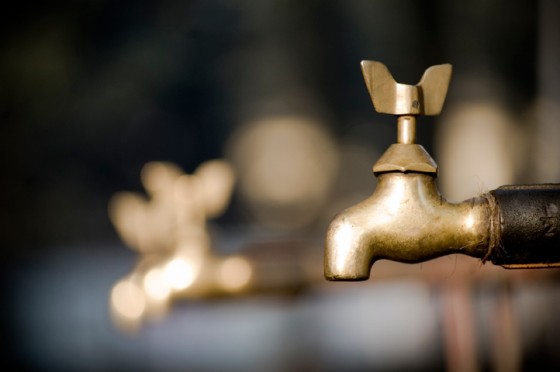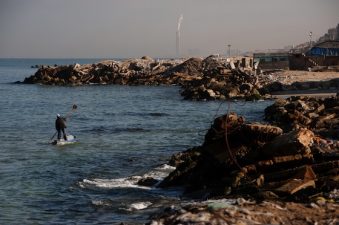 According to a report by the International Water Association, the low price of water is the main factor preventing water conservation in rural Jordan
According to a report by the International Water Association, the low price of water is the main factor preventing water conservation in rural Jordan
These days it seems that the only way to change people’s attitudes is to hit them where it hurts them most- their bank balance. Unless it makes economic sense, it’s pretty difficult to get people to assess and change their deep-rooted habits. For example, I have tried for years to convince people to give up their cars but until the recession hit, I was having very little luck.
Now I know three people who have given up their cars simply because they can’t afford them. High taxes on alcohol and cigarettes also encourage us to reconsider (or moderate) our unhealthy addictions but should upping the price of water be a real consideration when looking at water conservation?
Jordan’s Irrigation Agriculture uses 75% of water
According to the latest report by the International Water Association (IWA), the price of water is an important factor when it comes to water preservation. In Jordan, which is considered to be the fourth most water-poor nation in the world, inefficient farming and irrigation practices mean that water (which is increasingly precious) is being wasted on a huge scale.
For example, the irrigated agricultural sector consumes 75% of Jordan’s water whilst only contributing 4% to the national income. In response to this, the IWA have stated that pushing up the price of water used for irrigation would provide an important economic incentive to encourage farmers to become more water efficient.
Save Water For The Rising Population
The IWA then go on to reason that the water saved could be supplied to consumers in Jordan- in particularly Amman- where demand is rising. Whilst I was initially against putting up the price of water as it may affect people’s access, there does appear to be logic in the IWA’s arguments.
A price hike on water for irrigation would not affect consumers and households who need water, rather it would help increase the water available to them and that has to be a good thing.
We know that upping prices alters consumers’ behaviour so the impact on the farmers’ profit margins should send a clear message: save water and you’ll save money.
What About Food Security?
The only concern is that if the infrastructure to help farmers save water isn’t there, then farmers may just abandon their work and Jordan’s efforts to improve its food security would be halted.
Jordan was recently was rated the third among 18 countries which are considered at ‘extreme water-security risk’, so clearly something has to be done. We just need to make sure that suggestions are actually viable, that they improve normal people’s access to water and that they also don’t interfere with other self-sufficiency goals.
: Image via Ariful H Bhuiyan.
For more on Jordan water news see:
Jordan Signs Up For Epic ‘Sahara Forest Project’
Analyzing the Middle East Water Crisis: In Jordan, Israel and Beyond
Middle East Water Security Worries Prince of Jordan




There is a fine line between providing incentives to farmers against the profligate inefficient use of water and the shameless profiteering of a small group of international water companies who seek to ‘educate through charging’.
This approach of bringing in the UN then they outsource cosy lucrative deals to their favourite glbal water corporations funded through disgustingly high interest loans which turn developing nations into debt slaves of the banks should be avoided.
An internal water education effort is the way to go.